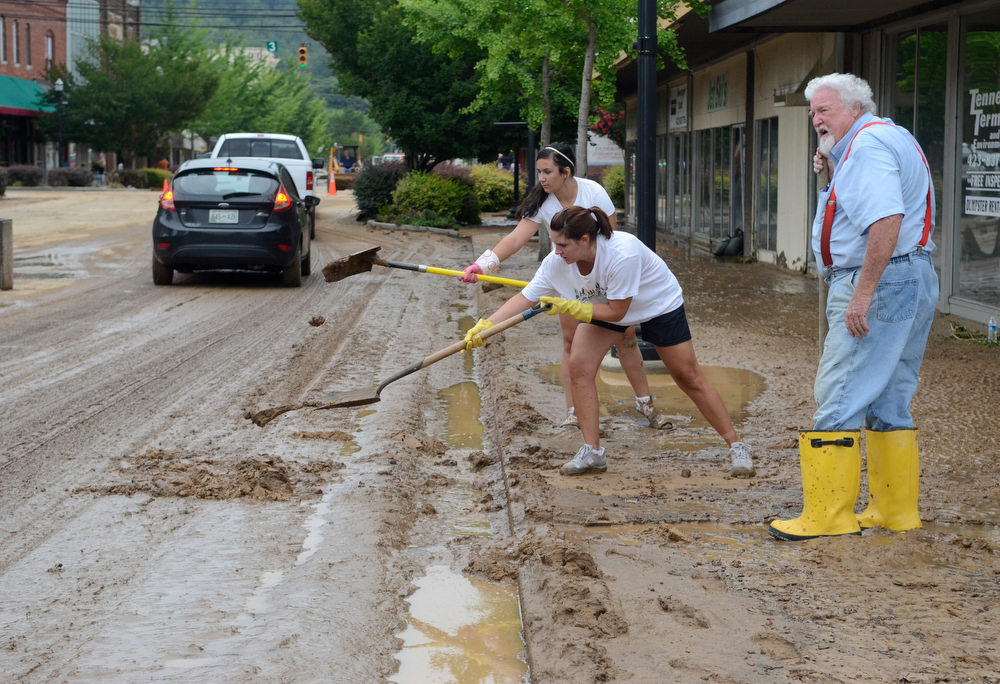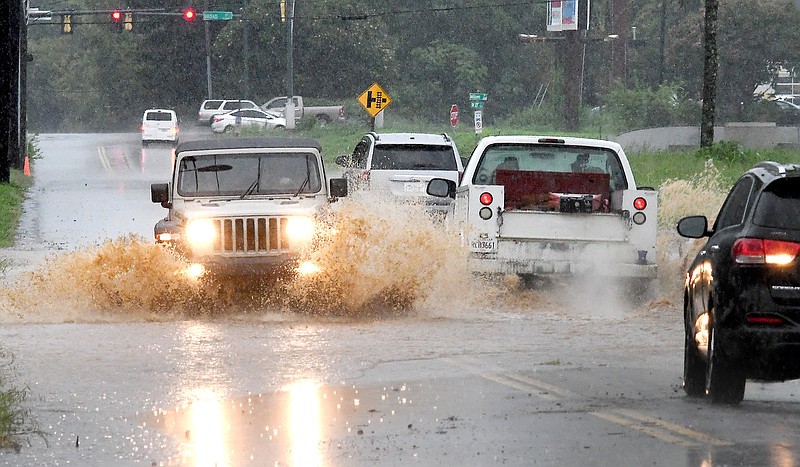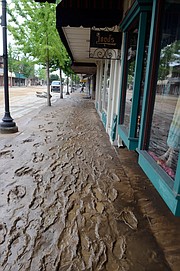Community members in South Chattanooga, South Pittsburg and Spring City, Tennessee, and Dalton, Georgia, are participating in a program to help underserved communities find nature-based solutions to the increasing effects of climate change and other environmental challenges.
The Resilient Communities pilot program is an initiative of Thrive Regional Partnership and the Open Space Institute.
"We protect land that supports the things we can't live without, like clean water, climate protection and healthy communities," Joel Houser, Open Space Institute's Chattanooga-based Southeast field coordinator, said by email. "Building on more than a decade of work in the Chattanooga region, the Resilient Communities program helps OSI achieve its mission by ensuring that land conservation and other natural climate solutions are deployed in strategic ways that most benefit the communities in which we work."
The institute's experience planning for climate change and Thrive's community connections made the two organizations natural partners for the project, he said.
"Thrive's mission is to inspire responsible growth through conversation, connection and collaboration," Rhett Bentley, strategic communications director for Thrive Regional Partnership, said by email. "We believe it is important to build partnerships that enhance quality of life in the Tri-state not just for today, but for future generations."
Thrive already has relationships with community members in the four participating communities, which were selected based on factors including current community impacts from extreme weather, the ability to address some of those impacts through conservation and management and community interest in participating in the program, Bentley said.
South Pittsburg Mayor Samantha Rector said the city has worked with Thrive in the past on flood mitigation efforts to assist with the revitalization of its downtown area, which has flooded four times in recent years. The city plans to continue focusing on its downtown revitalization through the pilot program.
"We have so many vacant buildings and empty businesses, and nobody wants to purchase those because we flood," Rector said by phone.
Spring City, in Rhea County, has also experienced flooding in its downtown district, with the most recent incident in February 2019, City Manager Stephania Motes said.
"It affected a lot of businesses here in downtown, and it took them several months -- if not over a year -- to recover from that," Motes said by phone. "We felt that it would be important to participate in this cohort because of the shared issues that we have with the other communities involved in this same cohort, and also to be able to bring this community a little bit closer together to come up with different solutions to help with that issue."
Each participating community is forming a committee composed of community members to work with Thrive to develop solutions to the environmental issues the community faces.
"Far and away, the most common, frequent, and devastating challenge is persistent flooding, but communities are also facing impacts such as urban heat islands and the potential for wildfires or landslides," Houser said.
The institute will work with each community to tailor solutions specific to their geography, such as evaluating the areas upstream of each community that contribute to flooding and identifying areas that are most important to conserve to keep flooding from getting worse or inundating communities as quickly.
"Natural climate solutions do not only address single problems but can be part of increasing the overall livability in a community," Houser said, adding that land set aside to absorb floodwater when needed could be used as a park most of the year, and trees planted in an urban heat island to offer shade and protection from severe wind could also increase property values.
The pilot program kicked off last week and is estimated to take about a year, Bentley said.
"With the expertise of our colleagues at the Open Space Institute we look forward to conducting an 'inspiration scan,' diving into best practices of resilience planning, and learning from case studies in other parts of the Southeast and beyond to see how resilience enhanced the quality of life for residents of other comparable communities," she said of the next steps in the process.
At the end of the program, which is funded by the Merck Family Fund and the Footprint Foundation, each participating community is eligible to receive seed funding for their resilience plan, she said.
Contact Emily Crisman at ecrisman@timesfreepress.com or 423-757-6508.
 Staff photo by John Rawlston/Chattanooga Times Free Press - Jul 11, 2013 Volunteers Skylar Pilgrim, left, and Jennifer Cardin show up with shovels Thursday to help clear mud from the sidewalk along Cedar Avenue as South Pittsburg residents deal with the aftermath of flash flooding that happened Wednesday night. Buddy Woods, who owns the commercial buildings on this block had been shoveling by himself when the volunteers walked up to help.
Staff photo by John Rawlston/Chattanooga Times Free Press - Jul 11, 2013 Volunteers Skylar Pilgrim, left, and Jennifer Cardin show up with shovels Thursday to help clear mud from the sidewalk along Cedar Avenue as South Pittsburg residents deal with the aftermath of flash flooding that happened Wednesday night. Buddy Woods, who owns the commercial buildings on this block had been shoveling by himself when the volunteers walked up to help.
